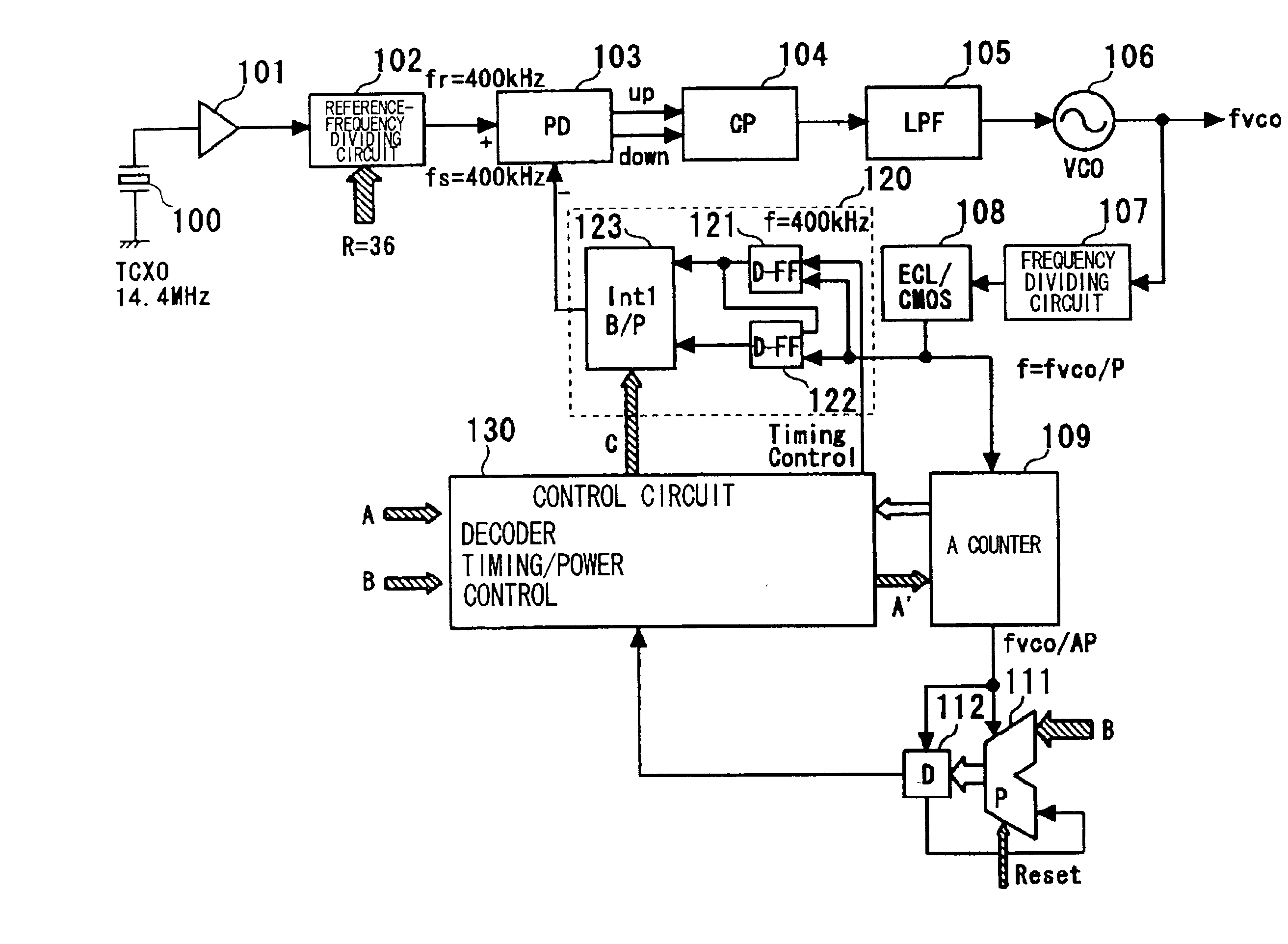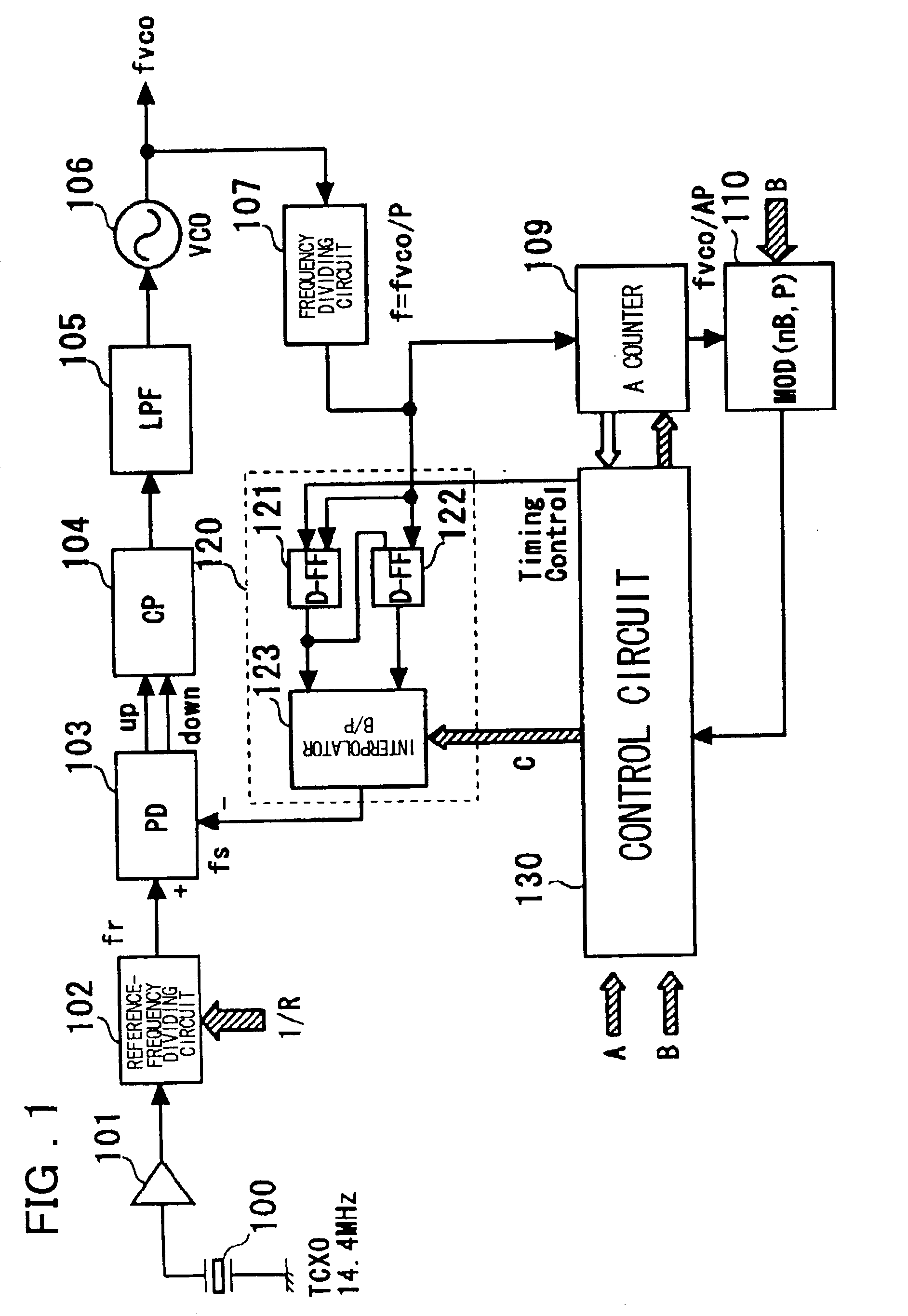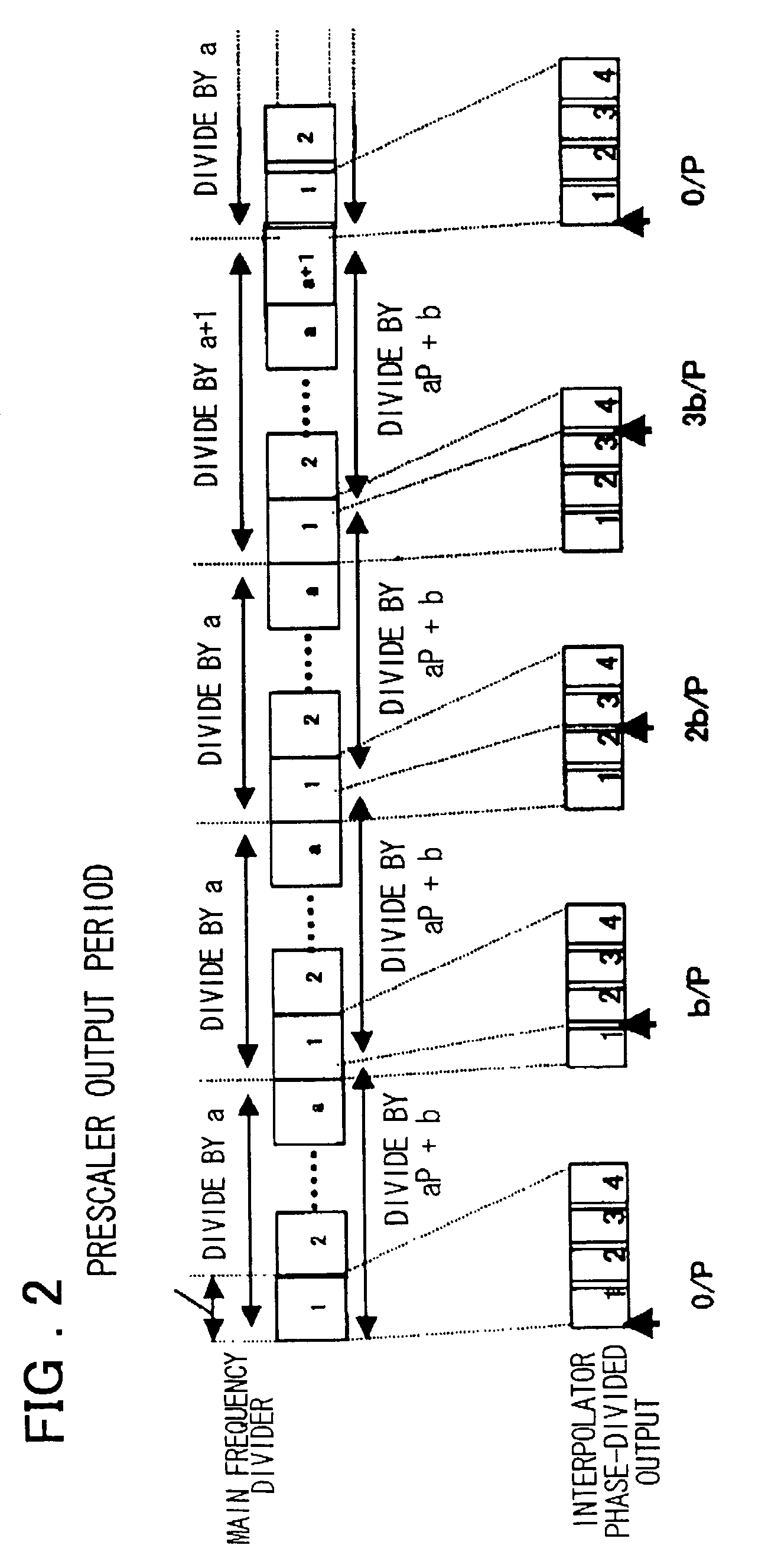Clock control method, frequency dividing circuit and PLL circuit
a control method and frequency division technology, applied in the direction of generating/distributing signals, pulse techniques, computations using pulse rate multipliers/dividers, etc., can solve the problems of difficult control of the timing of the mc (modulus control) signal, large amount of power consumed, and difficulty in high-speed operation, so as to facilitate timing design and reduce power consumption
- Summary
- Abstract
- Description
- Claims
- Application Information
AI Technical Summary
Benefits of technology
Problems solved by technology
Method used
Image
Examples
Embodiment Construction
[0054] Preferred embodiments of the present invention will now be described. As shown in FIG. 1, a frequency dividing circuit in accordance with a preferred embodiment of the present invention includes a first frequency dividing circuit (107) for performing frequency-division of an input signal by P (where P is a positive integer); a second frequency dividing circuit (109) for performing frequency-division of an output signal of the first frequency dividing circuit (107) by A (where A is a positive integer); a circuit (121, 122, 130) for generating two signals, which have a phase difference equivalent to one period of the P-frequency-divided output of the first frequency dividing circuit (107), whenever frequency-division by A is performed by the second frequency dividing circuit (109); an interpolator (123), which receives the two generated signals, for generating and outputting an output signal of a phase obtained by interpolating the phase difference between the two signals in st...
PUM
 Login to View More
Login to View More Abstract
Description
Claims
Application Information
 Login to View More
Login to View More - R&D
- Intellectual Property
- Life Sciences
- Materials
- Tech Scout
- Unparalleled Data Quality
- Higher Quality Content
- 60% Fewer Hallucinations
Browse by: Latest US Patents, China's latest patents, Technical Efficacy Thesaurus, Application Domain, Technology Topic, Popular Technical Reports.
© 2025 PatSnap. All rights reserved.Legal|Privacy policy|Modern Slavery Act Transparency Statement|Sitemap|About US| Contact US: help@patsnap.com



